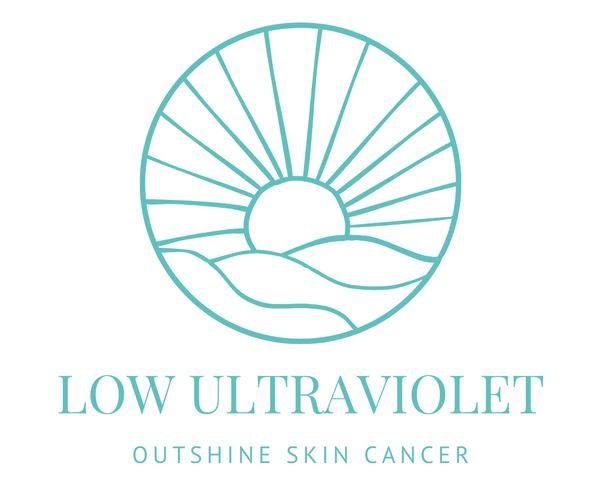An investigation program recently exposed a Chinese garment manufacturer in a program titled "Who is Manufacturing Fake Sun-Protective Clothing?" The exposé uncovered that a garment factory produced not only fake UV-protective garments but engaged in other concerning behaviors. Here's what we know.

The Facts
According to the Global Times, a garment factory in East China's Jiangxi Province not only knowingly provided fake UV-protective fabrics but also falsified testing reports and certificates and printed fake UPF labels. One of the "sun-protective" jackets produced by the factory sold more than 300,000 units last year. And that's just a single item. The full scope of distribution remains unknown, raising serious questions about the integrity of other mass-produced "sun-protective" clothes on the market.
Unlike sunscreen, sun-protective clothing is not categorized as a drug and does not have to be approved by the Food and Drug Administration (FDA). And while the Federal Trade Commission (FTC) technically regulates the labeling of sun-protective clothing, it is unknown how closely they police marketing claims.
The Impact on Consumer Confidence
This exposé deeply undermines trust in the UPF apparel industry. When consumers can't distinguish between genuinely protective garments and fraudulent ones, it puts health and safety at risk, especially for those relying on these products to guard against skin cancer and UV-related damage.
After this news broke, we spoke with our community to see how they felt about the matter. Leah Koskinen, a melanoma survivor and advocate, shared, "Typically, UPF clothing is a higher price point, so 1. seeing a $14 shirt on Amazon that claims to be UPF 50+ is super attractive to me, and 2. Amazon in general is just too easy to order from, so the combo of the two is something I would jump on immediately if I felt comfortable doing so, but after reading that article, now obviously I'm hesitant!" Many others in the community shared similar feelings.
Shady practices, misleading labels, and counterfeit certifications do more than deceive. They erode consumer confidence in the entire category. For sun-protective brands doing the right thing, this means added pressure to prove their legitimacy, maintain transparency, and educate customers on how to verify claims.
Additional Sun Safe Pieces Under Fire
This isn't the only sun-protective gear recently under fire. Sun-protective accessories are facing scrutiny, too. Board-certified dermatologist, Dr. Shereene Idriss, recently put two UV protective visors purchased on Amazon to the test. Both visors claimed to protect against UVA and UVB rays. However, when put to the test using a Wood's lamp, both failed to protect as advertised.
Searching for a true, sun-protective visor? Dr. Idriss partnered with Bluestone Sunshields to create the Major Shade Full Lux Sunshield, which blocks 99% of UVA/UVB rays and blue light.
How to Spot Faux Sun Protective Garments
The sun-protective apparel market is not heavily regulated. This means anyone can technically claim their garments have UPF sun protection. Thankfully, we have a few tips to help you track down authentically tested sun-safe apparel.
- Research the brand: Look into a brand’s transparency and reputation. When in doubt, you should be able to reach out to any UPF brand and request their textile certifications.
- Look for Tags from Trusted Standards: While not foolproof, garments tested under the AS/NZS 4399 or ASTM D6603 standards are more likely to be legitimate. You can also look for the Skin Cancer Foundation Seal of Recommendation.
- Question Ratings That Don't Make Sense: Textiles typically fall into one of three categories: UPF 15, UPF 30, and UPF 50+. UPF 50+ blocks 98% of UVA and UVB rays and is the highest rating given to textiles. There are products on Amazon claiming to be UPF 2000; this should raise red flags.
The bottom line: if a $13 UPF 50+ sun shirt on Amazon seems too good to be true, it just may be.
Verified Sun-Safe Pieces
We understand that ordering from Amazon is as easy as it gets. Thankfully, not all sun-safe pieces from Amazon are faux. Here are some of our SunVetted pieces:
- Women's UPF 50+ Sun Shirt & Men's UPF 50+ Hoodie: Both of these affordable pieces have the Skin Cancer Foundation's Seal of Recommendation.
- Men's Everyday Short Sleeve: Well-known band names like Coolibar are available on Amazon and often marked down depending on size and color.
- Mock Neck Cropped Rash Guard: Larger brands, like Lands' End, have the Seal of Recommendation and a presence on Amazon. Like Coolibar, they often run deals on certain products, sizes, and colors.
If you wnat peace of mind that you're shopping pre-vetted, sun-safe pieces, we've got your back. Visit Shop SunVetted or shop our carefully curated selection at Low Ultraviolet.
The Bottom Line
Ultimately, this investigation should serve as a wake-up call. As the popularity of UPF apparel continues to grow, so must consumer awareness and brand accountability. If you're shopping for sun-protective clothing and accessories, don't rely on a label alone. Ask questions and protect your skin and your peace of mind.

